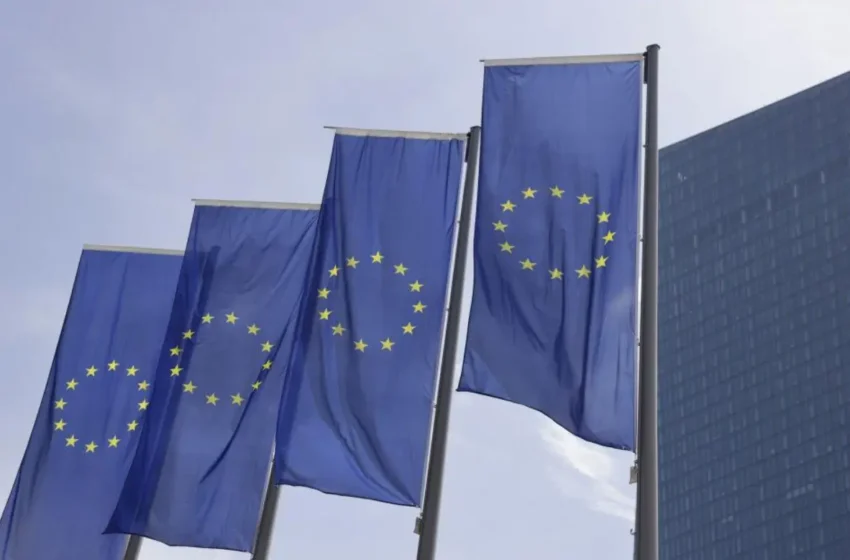Fed Chair Nominee Kevin Warsh Calls Bitcoin an Important Asset
EU Regulators Face Contradiction on Blockchain Privacy
(Originally posted on : Crypto News – iGaming.org )
Regulators in the European Union are tightening the focus on how blockchain networks handle personal data. The European Data Protection Board (EDPB) has published fresh guidance stressing that blockchain projects must follow the same General Data Protection Regulation (GDPR) rules as any other data processor.
Good to know
- EU regulators confirm that blockchain technology must comply with GDPR rules.
- Deleting a blockchain could be necessary if personal data cannot be removed individually.
- Privacy-enhancing technologies and permissioned chains may offer paths to compliance.
The report outlines specific criteria that blockchain operators should consider when evaluating GDPR compliance. The EDPB calls for a clear assessment of whether personal data is stored on the chain and, if so, why blockchain is the chosen method for processing that information. The board also asks whether other, less permanent solutions could work just as well.
A critical issue in the report revolves around data deletion. GDPR requires that personal information be erased once it no longer serves its original purpose or passes its legally allowed retention period. That poses a challenge for many blockchain systems, which are designed to be immutable.
The EDPB states,
New players only. Exclusive Welcome Bonus of 350% + 150 Free Spins
“Personal data must be erased once the purposes of the processing has been achieved and any regulatory periods for retention have expired in order to conform to the principle of storage limitation.
Data deletion at the individual level in a blockchain can be challenging and requires ad-hoc engineered architectures. When deletion has not been taken into account by design, this may require deleting the whole blockchain.”
The board recommends examining the type of blockchain in use—whether a public, private, or permissioned network—and exploring options such as zero-knowledge architectures to improve privacy protection. Storing data off-chain and using privacy-enhancing technologies may also help developers stay compliant.
The guidance makes it clear that blockchain does not receive special treatment under EU law. Developers and companies using the technology must think carefully about its impact on data protection. That includes considering how technical and organizational measures are applied, and how those measures align with GDPR requirements from the start of the design process.
New players only. Exclusive Welcome Bonus of 177% + 77 Free Spins
There seems to be a contradiction between the call for stronger data protection under GDPR and the surveillance-friendly approach taken under MiCA. Does the EU expect privacy on blockchain only when it suits its regulatory goals? Or will future policies confirm that the bloc is applying double standards?







 Bitcoin
Bitcoin  Ethereum
Ethereum  Tether
Tether  XRP
XRP  USDC
USDC  Solana
Solana  TRON
TRON  Figure Heloc
Figure Heloc  Lido Staked Ether
Lido Staked Ether  Dogecoin
Dogecoin  WhiteBIT Coin
WhiteBIT Coin  USDS
USDS  Cardano
Cardano  Bitcoin Cash
Bitcoin Cash  LEO Token
LEO Token  Wrapped stETH
Wrapped stETH  Hyperliquid
Hyperliquid  Monero
Monero  Wrapped Bitcoin
Wrapped Bitcoin  Chainlink
Chainlink  Binance Bridged USDT (BNB Smart Chain)
Binance Bridged USDT (BNB Smart Chain)  Ethena USDe
Ethena USDe  Canton
Canton  Stellar
Stellar  USD1
USD1  Wrapped eETH
Wrapped eETH  Rain
Rain  Hedera
Hedera  sUSDS
sUSDS  Litecoin
Litecoin  PayPal USD
PayPal USD  Dai
Dai  Coinbase Wrapped BTC
Coinbase Wrapped BTC  Avalanche
Avalanche  Zcash
Zcash  Sui
Sui  WETH
WETH  Toncoin
Toncoin  Shiba Inu
Shiba Inu  Cronos
Cronos  USDT0
USDT0  Tether Gold
Tether Gold  World Liberty Financial
World Liberty Financial  MemeCore
MemeCore  Polkadot
Polkadot  Uniswap
Uniswap  PAX Gold
PAX Gold  Mantle
Mantle  Ethena Staked USDe
Ethena Staked USDe  BlackRock USD Institutional Digital Liquidity Fund
BlackRock USD Institutional Digital Liquidity Fund  Circle USYC
Circle USYC  OKB
OKB  Pi Network
Pi Network  Aave
Aave  Bittensor
Bittensor  Sky
Sky  Aster
Aster  Falcon USD
Falcon USD  Global Dollar
Global Dollar  syrupUSDC
syrupUSDC  NEAR Protocol
NEAR Protocol  Ripple USD
Ripple USD  Bitget Token
Bitget Token  Pepe
Pepe  HTX DAO
HTX DAO  Internet Computer
Internet Computer  Ethereum Classic
Ethereum Classic  BFUSD
BFUSD  Ondo
Ondo  Pump.fun
Pump.fun  Worldcoin
Worldcoin  Gate
Gate  POL (ex-MATIC)
POL (ex-MATIC)  KuCoin
KuCoin  Superstate Short Duration U.S. Government Securities Fund (USTB)
Superstate Short Duration U.S. Government Securities Fund (USTB)  Jupiter Perpetuals Liquidity Provider Token
Jupiter Perpetuals Liquidity Provider Token  Midnight
Midnight  Ethena
Ethena  Quant
Quant  Cosmos Hub
Cosmos Hub  Ondo US Dollar Yield
Ondo US Dollar Yield  Jito Staked SOL
Jito Staked SOL  NEXO
NEXO  Spiko EU T-Bills Money Market Fund
Spiko EU T-Bills Money Market Fund  USDtb
USDtb  Binance-Peg WETH
Binance-Peg WETH  Rocket Pool ETH
Rocket Pool ETH  Algorand
Algorand  Binance Bridged USDC (BNB Smart Chain)
Binance Bridged USDC (BNB Smart Chain)  Aptos
Aptos  Filecoin
Filecoin  Wrapped BNB
Wrapped BNB  Official Trump
Official Trump